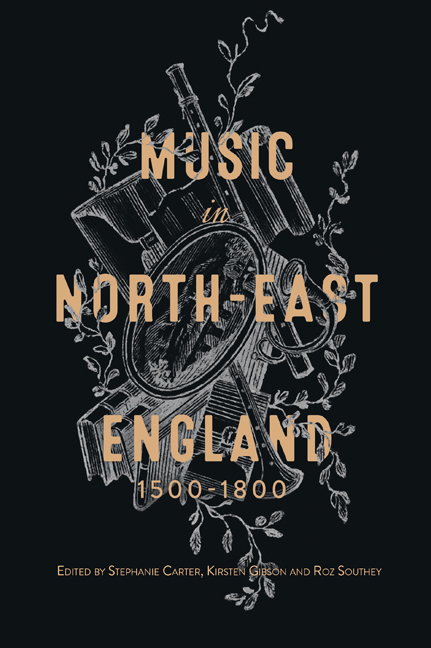7 - Tunes for Violin or Recorder Collected in North-East England and London in the Late Seventeenth Century: The Provenance and Contents of the Blakiston Manuscript (GB-Lbl Add. MS 17853)
Published online by Cambridge University Press: 17 November 2020
Summary
It is widely acknowledged that amateur musicians, including aristocrats, gentry and members of the professional classes, were prominent in the musical culture of late seventeenth- and early eighteenth-century England and Scotland. For example, the dean of Christ Church, Oxford, Henry Aldrich (1648–1710), the clergyman and recorder player Edward Finch (1663–1738), the botanist James Sherard (1666–1738), the lawyer Sir John Clerk of Penicuik (1676–1755) and the merchant Rowland Sherman all stand out as collectors, copyists or composers. Educational ideals for male elites, which emphasized a broad curriculum, encouraged such individuals not only to compose in a spirit of rational enquiry, but often also to copy significant quantities of music for study purposes or performance.
Music manuscripts copied by amateurs are important records of amateur musical tastes and often give a fascinating window onto their efforts in learning music. However, these manuscripts can also give valuable information on other matters, such as where musical activity took place and the musical circles to which amateurs belonged. The relaxing of censorship laws in the 1690s seems to have paved the way for a rapid expansion in the printing of newspapers, which often contain advertisements for public concerts, music sellers and makers or importers of instruments, while for the late seventeenth century some publishers’ catalogues indicate the availability of printed music beyond the metropolis. For the period before the advent of newspapers, some documentation is also provided by household accounts, diaries, letters, probate inventories and parish registers. Yet the sort of information these provide is piecemeal and limited by what individuals decided to record. Self-compiled music manuscripts, on the other hand, have the potential to tell us more about the musical activities of late seventeenth-century amateurs and their milieu.
Carter and Gibson's study of the Henry Atkinson manuscript in this collec-tion illustrates the potential significance of amateur music manuscripts for the study of musical culture in northern England. This manuscript was copied by the Newcastle coal trader Henry Atkinson (1670–1759), who signed and dated it 1694/95.
- Type
- Chapter
- Information
- Music in North-East England, 1500–1800 , pp. 127 - 150Publisher: Boydell & BrewerPrint publication year: 2020



